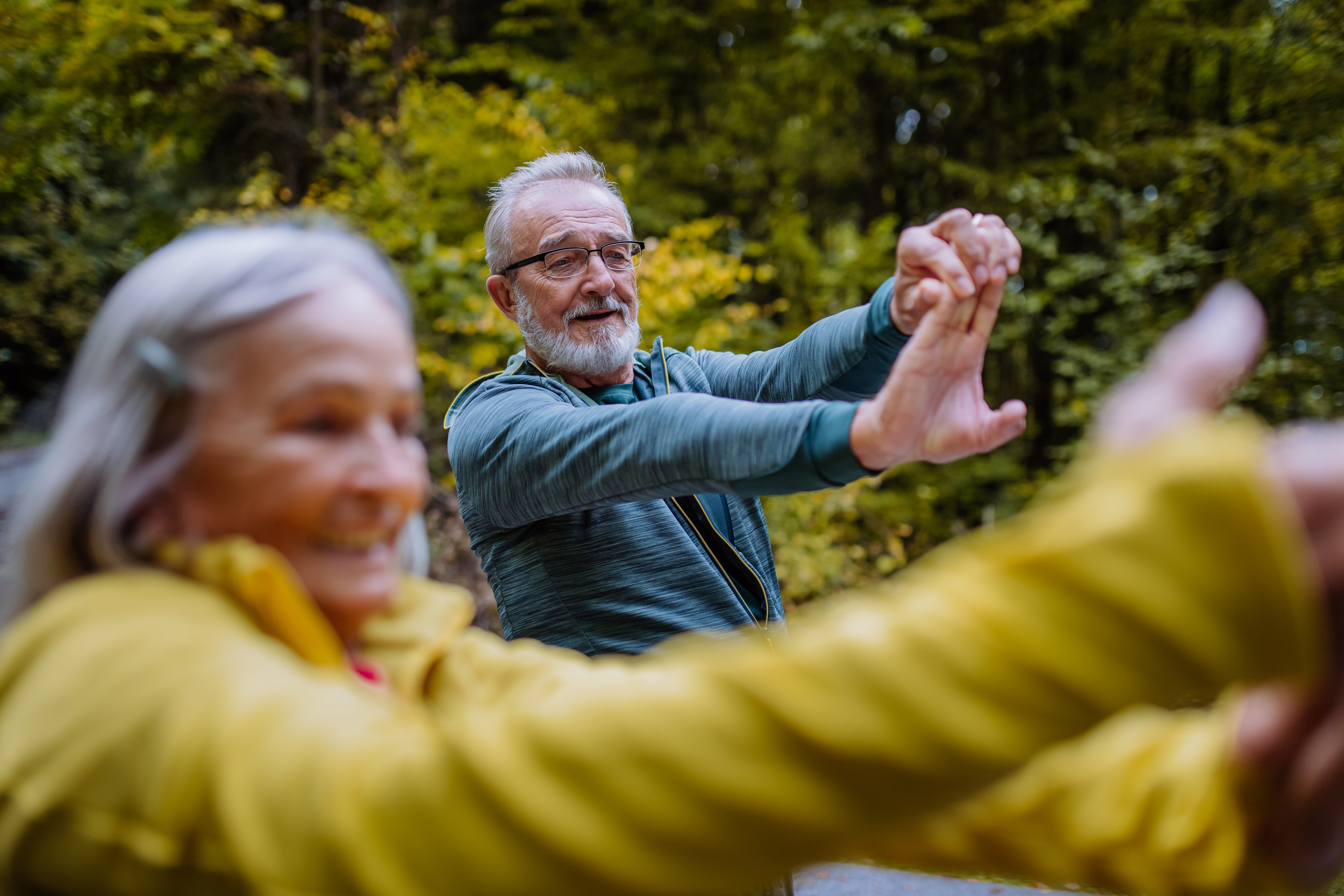How Meditation and Mindfulness Can Improve Your Life After 40
Turning 40 is often marked as a significant milestone in life. It is a time when many individuals start to reflect on their past achievements and future aspirations. This period can bring about a mix of emotions, ranging from excitement about new opportunities to anxiety about aging and health. Amidst these changes, meditation and mindfulness emerge as powerful tools that can significantly enrich one's life after 40. These practices, rooted in ancient traditions, offer a modern-day sanctuary for the mind and body. They provide a pathway to inner peace, improved health, and a deeper understanding of oneself. As we delve into the transformative ways meditation and mindfulness can enhance life after 40, we will explore how these practices can help manage stress, improve emotional well-being, and even boost cognitive function. Join us on this enlightening journey as we uncover the myriad benefits that await those who embrace mindfulness and meditation in their lives.
1. Stress Reduction: Finding Calm Amidst Chaos

One of the most immediate benefits of meditation and mindfulness is their ability to alleviate stress. After 40, life can become increasingly hectic with responsibilities such as career, family, and financial planning. Stress not only affects mental health but can also lead to physical ailments such as hypertension and heart disease. Mindfulness practices encourage individuals to focus on the present moment, reducing the tendency to ruminate over past events or worry about the future. By cultivating a state of calm awareness, meditation helps lower cortisol levels, the hormone associated with stress. Regular practice can lead to a more relaxed state of being, allowing individuals to navigate life's challenges with greater ease. As stress levels decrease, many find themselves more resilient and better equipped to handle the pressures of daily life.
2. Emotional Balance: Cultivating Inner Peace

Emotional well-being is crucial for a fulfilling life, especially as one enters their 40s. Meditation and mindfulness offer a pathway to achieving emotional balance by fostering a deeper connection with one's feelings. These practices teach individuals to observe their emotions without judgment, allowing them to respond rather than react to situations. This heightened awareness can lead to a more stable emotional state, reducing instances of anxiety and depression. By regularly engaging in mindfulness exercises, individuals can develop a greater sense of empathy and compassion, both for themselves and others. This emotional intelligence can enhance personal relationships and improve overall life satisfaction. As one learns to navigate their emotional landscape with grace and understanding, they may find a newfound sense of inner peace and contentment.
3. Enhanced Cognitive Function: Sharpening the Mind

As we age, cognitive decline becomes a concern for many. However, meditation and mindfulness have been shown to boost brain function and enhance cognitive abilities. Studies suggest that regular meditation can increase gray matter density in the brain, which is associated with improved memory, attention, and decision-making skills. Mindfulness practices encourage a focused and attentive state, which can enhance concentration and mental clarity. This heightened awareness can lead to better problem-solving skills and increased creativity. By incorporating meditation into their daily routine, individuals over 40 can maintain and even improve their cognitive functions, ensuring a sharp and agile mind well into their later years. This mental acuity can lead to greater success in both personal and professional endeavors.
4. Improved Sleep Quality: Restoring Restful Nights

Sleep disturbances are common as we age, often resulting in fatigue and decreased quality of life. Meditation and mindfulness can play a significant role in improving sleep quality by promoting relaxation and reducing stress. Mindfulness exercises, such as guided imagery and progressive muscle relaxation, can help calm the mind and prepare the body for restful sleep. Meditation encourages a state of deep relaxation, which can reduce the time it takes to fall asleep and increase the duration of deep sleep cycles. By establishing a regular meditation practice, individuals may experience fewer sleep disruptions and wake up feeling more refreshed and energized. Improved sleep quality can lead to better overall health, increased productivity, and a more positive outlook on life.
5. Physical Health Benefits: Beyond the Mind

While meditation and mindfulness are primarily associated with mental well-being, they also offer significant physical health benefits. Regular practice can lower blood pressure, reduce chronic pain, and boost the immune system. These practices encourage a holistic approach to health, promoting a healthy lifestyle that includes regular exercise, balanced nutrition, and adequate rest. Mindfulness can also lead to better body awareness, helping individuals recognize and address physical discomfort before it becomes a more significant issue. By fostering a mind-body connection, meditation empowers individuals to take charge of their health and well-being. As a result, many find themselves feeling more vibrant and energetic, ready to embrace the opportunities that life after 40 has to offer.
6. Self-Awareness: Discovering the True Self

Self-awareness is a cornerstone of personal growth and development. Meditation and mindfulness provide a pathway to greater self-understanding by encouraging introspection and reflection. These practices help individuals uncover their true selves, free from societal expectations and self-imposed limitations. Through meditation, one can explore their thoughts, beliefs, and values, gaining insight into what truly matters to them. This heightened self-awareness can lead to more authentic living, where individuals make choices aligned with their core values and desires. By embracing their true selves, many find a renewed sense of purpose and fulfillment in life. This journey of self-discovery can lead to greater confidence, self-acceptance, and a deeper connection with others.
7. Enhanced Relationships: Building Stronger Connections

Healthy relationships are vital for a fulfilling life, and meditation and mindfulness can significantly enhance interpersonal connections. By fostering emotional intelligence and empathy, these practices encourage more compassionate and understanding interactions with others. Mindfulness teaches individuals to be present and attentive in their relationships, leading to more meaningful and authentic connections. As one becomes more self-aware and emotionally balanced, they can communicate more effectively and resolve conflicts with greater ease. This improved communication can lead to stronger, more supportive relationships with family, friends, and colleagues. By nurturing these connections, individuals can create a robust support network that enriches their lives and provides a sense of belonging and community.
8. Increased Resilience: Bouncing Back from Adversity

Life after 40 can bring its share of challenges, from career changes to health issues. Meditation and mindfulness can enhance resilience, helping individuals navigate adversity with grace and strength. These practices teach individuals to remain grounded and centered, even in the face of difficulties. By cultivating a mindset of acceptance and non-judgment, mindfulness encourages individuals to view challenges as opportunities for growth and learning. This perspective can lead to greater adaptability and problem-solving skills, enabling individuals to bounce back from setbacks more quickly. As resilience increases, many find themselves more confident and capable of handling whatever life throws their way.
9. Mindful Eating: Nourishing the Body and Soul

Mindful eating is an extension of mindfulness that encourages individuals to develop a healthy relationship with food. This practice involves paying attention to the sensory experience of eating, including the taste, texture, and aroma of food. By savoring each bite and listening to the body's hunger and fullness cues, individuals can make more conscious and nourishing food choices. Mindful eating can lead to improved digestion, weight management, and a more enjoyable dining experience. As individuals become more attuned to their bodies' needs, they may find themselves gravitating towards healthier, more balanced meals. This mindful approach to eating can promote physical health, emotional well-being, and a deeper appreciation for the nourishment that food provides.
10. Creativity and Innovation: Unlocking New Possibilities

Meditation and mindfulness can unlock creativity and innovation, opening the door to new possibilities and opportunities. By quieting the mind and reducing mental clutter, these practices create space for creative ideas to emerge. Mindfulness encourages a state of open awareness, where individuals can explore new perspectives and think outside the box. This creative mindset can lead to innovative solutions and fresh approaches to challenges, both personally and professionally. As creativity flourishes, many find themselves more inspired and motivated to pursue their passions and goals. This newfound sense of creativity can lead to greater personal fulfillment and success in various aspects of life.
11. Spiritual Growth: Connecting with the Divine

For many, meditation and mindfulness are pathways to spiritual growth and a deeper connection with the divine. These practices encourage individuals to explore their spirituality and find meaning and purpose in life. Through meditation, one can cultivate a sense of inner peace and harmony, fostering a connection with something greater than themselves. This spiritual journey can lead to greater self-awareness, compassion, and a sense of interconnectedness with all living beings. As individuals deepen their spiritual practice, they may find themselves more aligned with their values and purpose, leading to a more meaningful and fulfilling life. Whether through traditional religious practices or personal spiritual exploration, meditation and mindfulness can enhance one's spiritual journey and enrich their life after 40.
12. Longevity and Aging Gracefully: Embracing the Golden Years

Meditation and mindfulness can contribute to longevity and help individuals age gracefully. By promoting physical, mental, and emotional well-being, these practices can enhance the quality of life and increase lifespan. Mindfulness encourages a positive outlook on aging, fostering acceptance and appreciation for the aging process. This mindset can lead to healthier lifestyle choices, such as regular exercise, balanced nutrition, and stress management, which are essential for maintaining vitality and longevity. As individuals embrace the golden years with grace and resilience, they may find themselves enjoying a more vibrant and fulfilling life. Meditation and mindfulness can be powerful allies in the journey of aging, helping individuals live life to the fullest and make the most of every moment.
13. Mindful Parenting: Nurturing Future Generations

For those who are parents, meditation and mindfulness can enhance their parenting skills and foster a more nurturing environment for their children. Mindful parenting involves being present and attentive in interactions with children, listening to their needs, and responding with empathy and understanding. These practices can help parents manage stress and emotions, leading to more patient and compassionate parenting. By modeling mindfulness and emotional regulation, parents can teach their children valuable life skills and promote their emotional well-being. Mindful parenting can strengthen the parent-child bond and create a supportive and loving family dynamic. As parents embrace mindfulness, they can inspire future generations to lead mindful and fulfilling lives.
14. Cultivating Gratitude: Embracing Life's Blessings

Gratitude is a powerful practice that can enhance well-being and life satisfaction. Meditation and mindfulness can cultivate a sense of gratitude by encouraging individuals to focus on the positive aspects of their lives. By regularly reflecting on the things they are thankful for, individuals can shift their mindset from scarcity to abundance. This practice can lead to greater happiness, contentment, and resilience in the face of challenges. As gratitude becomes a daily habit, many find themselves more appreciative of life's blessings and more connected to the people and experiences that bring them joy. Cultivating gratitude can transform one's outlook on life, leading to a more positive and fulfilling existence.
15. Mindful Living: Embracing the Present Moment

Mindful living is the practice of being fully present and engaged in each moment, allowing individuals to experience life more deeply and authentically. Meditation and mindfulness can help cultivate this state of awareness, encouraging individuals to savor the simple pleasures of life and find joy in everyday experiences. By letting go of distractions and focusing on the here and now, individuals can reduce stress and anxiety and increase their overall sense of well-being. Mindful living can lead to greater appreciation for the present moment and a more meaningful and fulfilling life. As individuals embrace mindfulness, they may find themselves more connected to their true selves and the world around them.
Embracing a Mindful Future

As we conclude this exploration of the transformative ways meditation and mindfulness can enrich life after 40, it is clear that these practices offer a wealth of benefits for the mind, body, and soul. From stress reduction and emotional balance to enhanced cognitive function and spiritual growth, meditation and mindfulness provide a pathway to a more fulfilling and meaningful life. By embracing these practices, individuals can navigate the challenges of aging with grace and resilience, finding joy and purpose in each moment. As we look to the future, let us embrace the power of mindfulness and meditation to create a life that is rich with possibility and potential. Whether you are new to these practices or a seasoned practitioner, there is always more to discover on the journey to a mindful and enriched life.